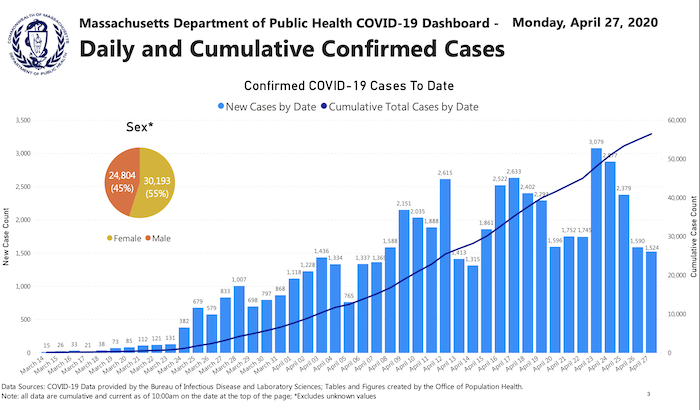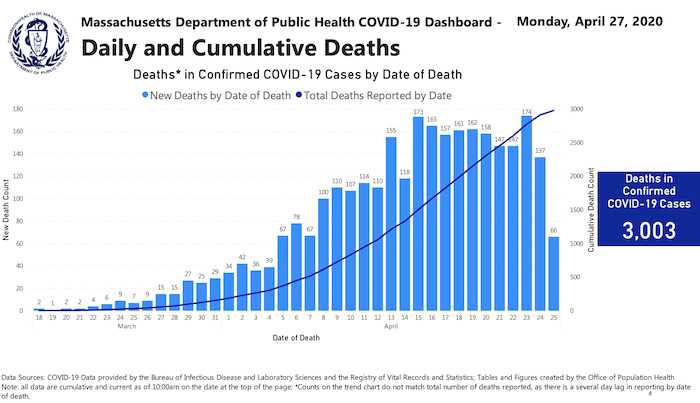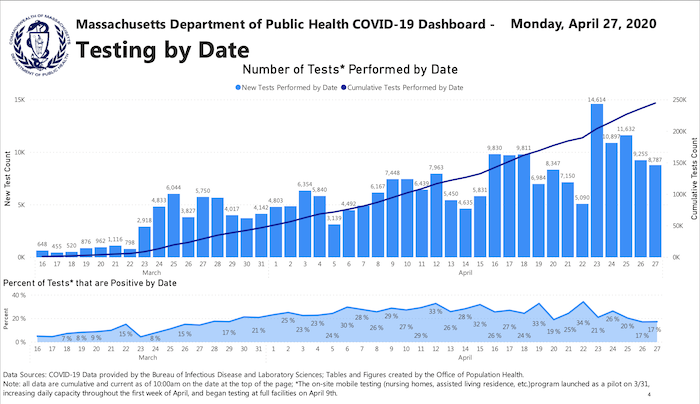Governor Baker extends non-essential business closures in Massachusetts to May 18th
Today, the Baker-Polito Administration extended the essential services emergency order to May 18th and launched a Reopening Advisory Board that will produce a plan to the Governor by May 18th. The Administration also announced that the Department of Public Health’s Stay At Home Advisory remains in effect and gatherings of 10 or more people remain prohibited until May 18th.
Essential Services Order: Governor Charlie Baker’s emergency order requiring that all businesses and organizations that do not provide “COVID-19 Essential Services” close their physical workplaces and facilities to workers, customers and the public will be extended until May 18th. Businesses and organizations not on the list of essential services are encouraged to continue operations through remote means that do not require workers, customers, or the public to enter or appear at the brick-and-mortar premises closed by the order. This order also extends the existing ban on gatherings of more than 10 people until May 18th.
Stay at Home Advisory: Governor Charlie Baker announced that the Department of Public Health’s stay-at-home advisory will remain in effect. Residents are strongly urged to stay home and avoid unnecessary travel and other unnecessary person to person contact during this time period. Residents who are considered at high risk when exposed to COVID-19 should limit social interactions with other people as much as possible.
Executive Branch Employee Guidance: The Baker-Polito Administration today also extended the guidance issued to Executive Branch employees on protocol during the COVID-19 outbreak to ensure state government can continue to provide key services while protecting the health and safety of the public and the Executive Branch workforce. Under the guidance, all employees performing non-core functions who are able to work remotely should continue to do so until May 18th.
Reopening Advisory Board: Today, Governor Baker announced the formation of the Reopening Advisory Board, which will be Co-Chaired by Lt. Governor Karyn Polito and Housing and Economic Development Secretary Mike Kennealy. The Board brings public health officials together with leaders from the business community and municipal government from across the Commonwealth. This group is charged with advising the administration on strategies to reopen the economy in phases based on health and safety metrics. It will meet with key stakeholders and solicit input from a variety of constituencies over the next three weeks to develop a report by May 18th that will include DPH approved workplace safety standards, industry frameworks and customer protocols and guidelines, including enforcement mechanisms and coordination with municipal leaders. This report is due on the 18th, but the administration has made clear that public health data and guidance from health care experts will dictate the timeline of the re-opening process.
The 17-member Advisory Board is composed of three public health officials, including Department of Public Health Commissioner Dr. Monica Bharel, three municipal officials, and eleven leaders from the business community, including MassDOT Secretary and CEO Stephanie Pollack. Members of the Advisory Board bring a range of perspectives to the table, such as an understanding of workplaces and workforces and insights into key areas like financial markets, education, manufacturing and transportation.
Reopening Advisory Board Members:
· Aron Ain, CEO, Kronos Inc & Ultimate Software
· Carlo Zaffanella, Vice President and General Manager, Maritime & Strategic Systems, General Dynamics Mission Systems
· Corey Thomas, CEO, Rapid 7
· Daniel Rivera, Mayor, City of Lawrence
· Rochelle Walensky, MD, MPH, Massachusetts General Hospital
· Girish Navani, CEO and Co-Founder, eClinicalWorks
· Joe Bahena, Senior Vice President, Joseph Abboud Manufacturing
· Kathryn Burton, Chief of Staff, City of Boston
· Laurie Leshin, Ph.D., President, Worcester Polytechnic Institute
· Linda Markham, President, Cape Air
· Mark Keroack, President & CEO, Baystate Health
· Monica Bharel, Ph.D., Commissioner, Department of Public Health
· Nicole LaChapelle, Mayor, City of Easthampton
· Pamela Everhart, Head of Regional Public Affairs and Community Relations, Fidelity Investments
· Stephanie Pollack, Transportation Secretary and CEO
· Steve DiFillippo, CEO, Davios Restaurants
· Wendy Hudson, Owner, Nantucket Book Partners




